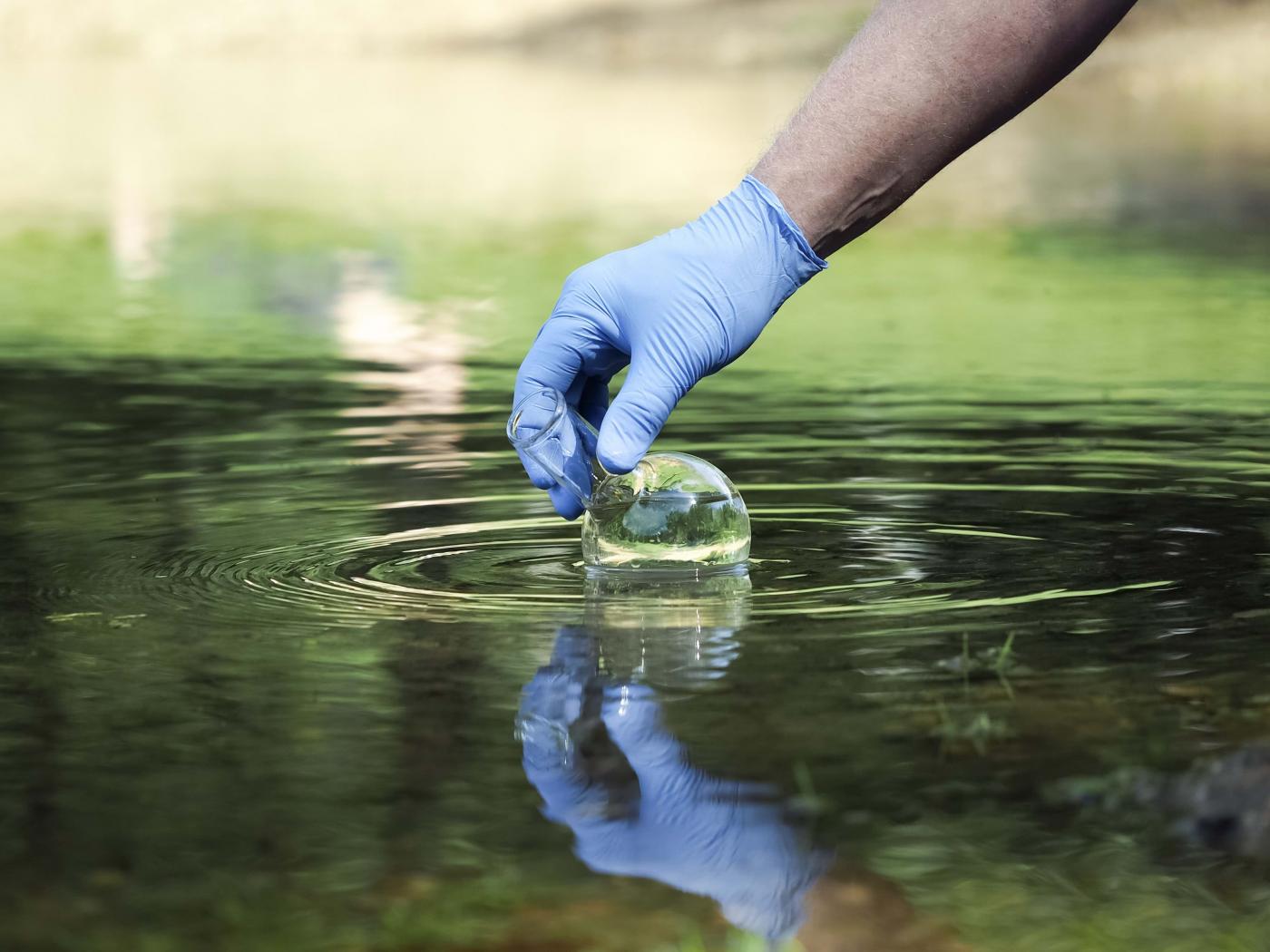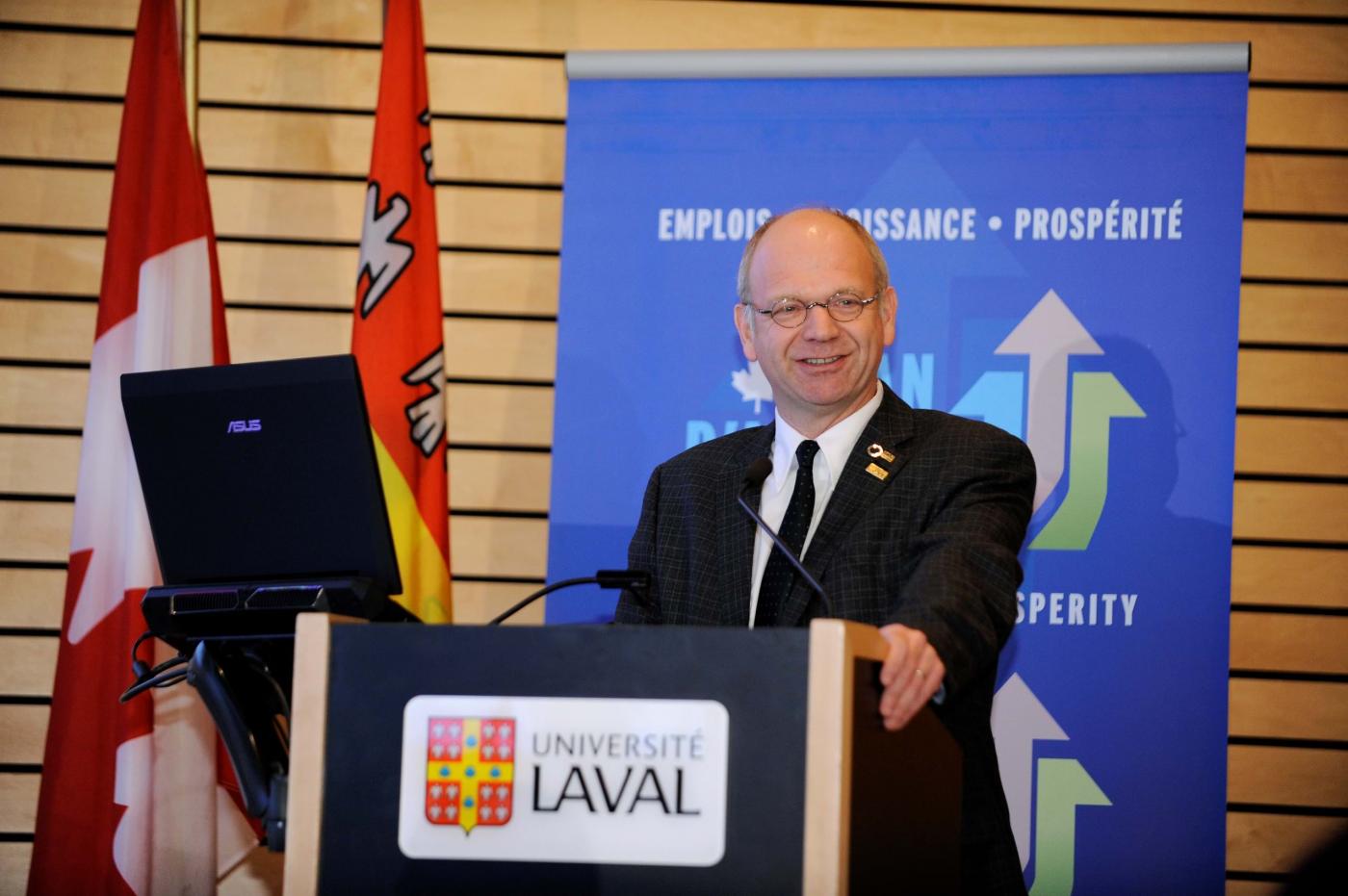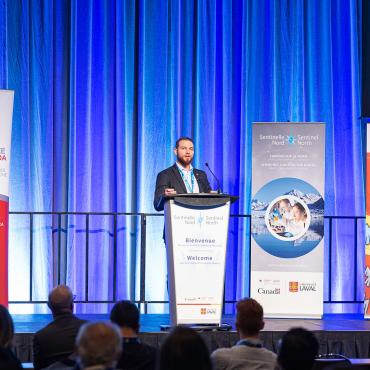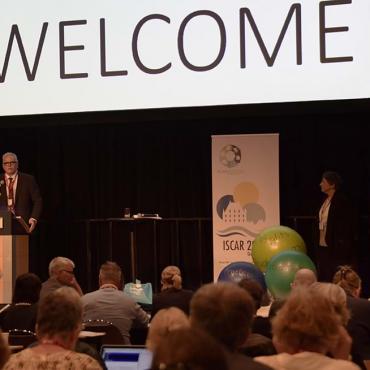Québec City: Riding the waves of innovative waste water management
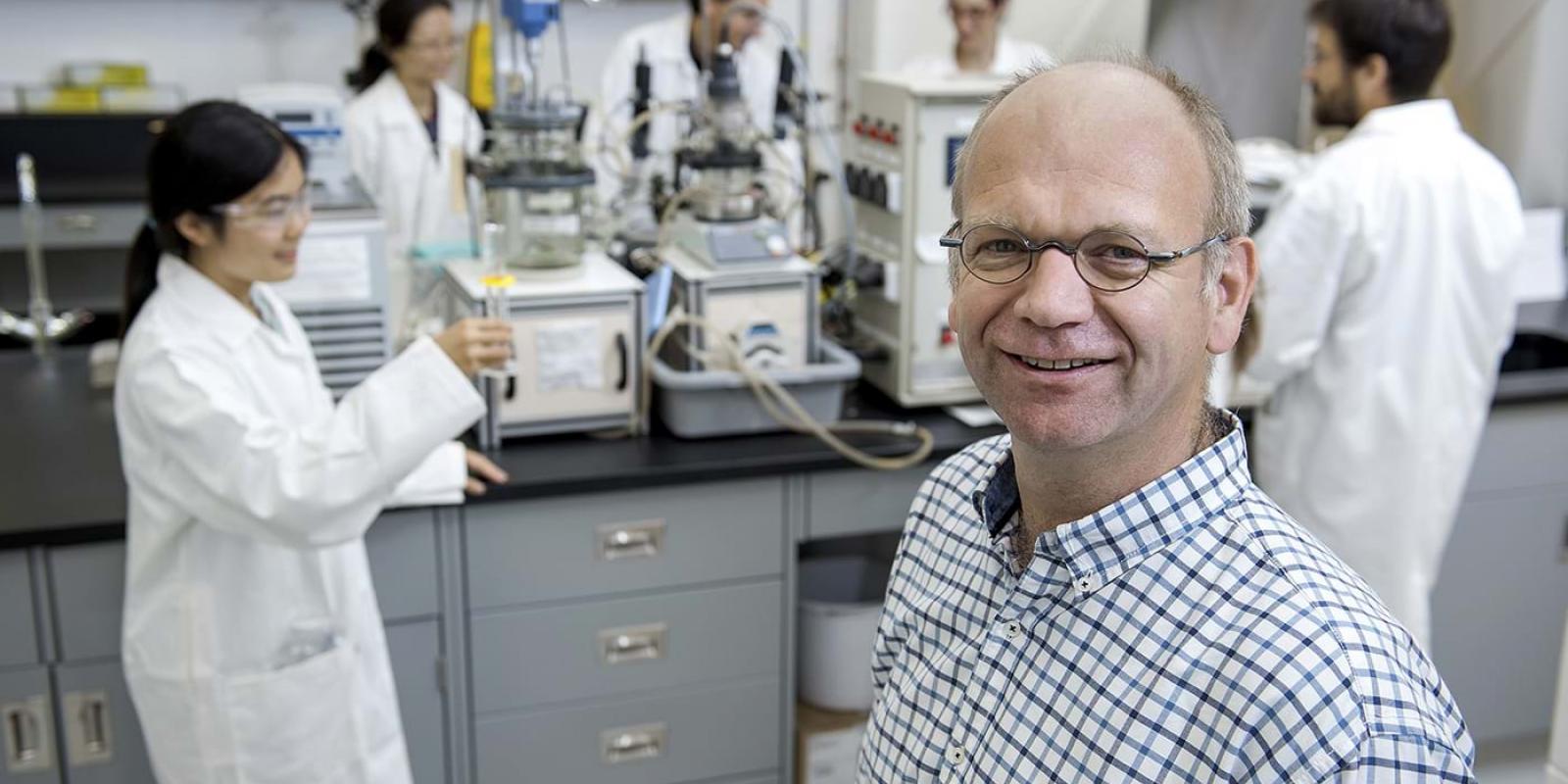
For Peter Vanrolleghem, a bio-engineer with a PhD in Applied Biological Sciences – Environmental Technology from Gand University in Belgium and member of Québec City's Ambassadors’ Club, water runs through his veins. Holding a Canada Research Chair on Water Quality Modelling and spearheading the modelEAU research group at Université Laval in Québec City, Mr. Vanrolleghem has been studying modelling methodologies for bioprocesses, specifically in waste water treatment, for decades.
“Waste water technology plays a key role in protecting the Earth’s bodies of water, namely rivers and oceans,” said the 2014 event Ambassador. “My research centres on how to model and optimize processes in sewer systems and treatment plants to mitigate the impact of waste water on our precious natural resources.”
Mr. Vanrolleghem points to Québec City’s innovative mindset as a key success factor in winning the event bid
Mr. Vanrolleghem’s commitment to his research shines through in the multiple events he has spearheaded ever since he moved to Canada in 2008. Almost every year, he was involved in organizing conferences that would bring together between 50 to 200 people to discuss waste water technologies and best practices. He organized the International Water Association / Water Environment Federation (IWA/WEF) Wastewater Treatment Modelling Seminar in 2008, 2010 and 2012, the 14th International Conference on Diffuse Pollution and Eutrophication in 2010 and the 10th IWA/IAHR International Conference on Urban Drainage Modelling in 2015.
And this year is no exception. He is the Chair of the Organizing Committee for ICA 2017, the 12th International Water Association’s Conference on Instrumentation, Control and Automation. Held from June 11 to 14, 2017, the conference welcomed over 150 delegates from all over the world to exchange on the latest technological advances and provide a means for the next-generation of professionals to network with seasoned experts
Mr. Vanrolleghem points to Québec City’s innovative mindset as a key success factor in winning the event bid. “One of the main reasons attendees are excited about coming to Québec City is how the city deals with sewer pipe capacity during floods. Québec City was one of the first to implement instrumentation and real-time automation to minimize overflows,” he said.
“It is amazing how the city is a real-life success story in proactive and effective waste water management. It’s not just theory here!” Mr. Vanrolleghem added that attendees from as far away as Asia are coming to Québec City to see how they can replicate, to a certain degree, Québec’s waste water management prowess.
Québec City’s popularity as a major tourist destination, European charm and accessibility via several major airports were also part of the lure of attracting such a large-scale event to the area. “The challenge wasn’t so much marketing the host city. That was the easy part. Québec City sells itself.”
He added: “The hardest part was bringing together such an eclectic mix of stakeholders with different needs: cities, manufacturers, academics and consultants. We had to create a program that everyone would be interested in.”
While academics eagerly respond to such conference invites, cities businesses and consultants can be somewhat harder to entice. “Academics want to learn from their peers and get a first-hand look into the trends that are likely to come in five, ten years’ time. Businesses want to reach new customers. That’s why we put together several conference tracks and a wide variety of networking opportunities so that cities can present their challenges—and manufacturers and consultants can present their solutions and unique approaches.”
The challenge wasn’t so much marketing the host city. That was the easy part. Québec City sells itself.
Another challenge was getting sponsors on board. “The keys to attracting sponsors at an event like the ICA 2017 is networking and establishing a dialogue to better understand what their true needs are,” he said. “Naturally, they are looking to gain visibility. However, for scientific conferences, there is a delicate balance to strike between sponsors and research neutrality. We had to be extra creative so that we could tie in sponsorships with specific and highly relevant themes.”
Mr. Vanrolleghem marvelled at how easy it was to work with Québec City’s representatives, the event venue and conference partners to set up a variety of different activities to stoke attendees’ interest. By varying the length of the conferences, meal settings and off-sites, the event’s organizers are sure that delegates will come away from the event impressed. “Delegates will be able to learn a lot about Québec City’s approach to waste water management—a world first—all while soaking up the sights. It’s fascinating how something as ‘simple’ water can bring international minds together.”
